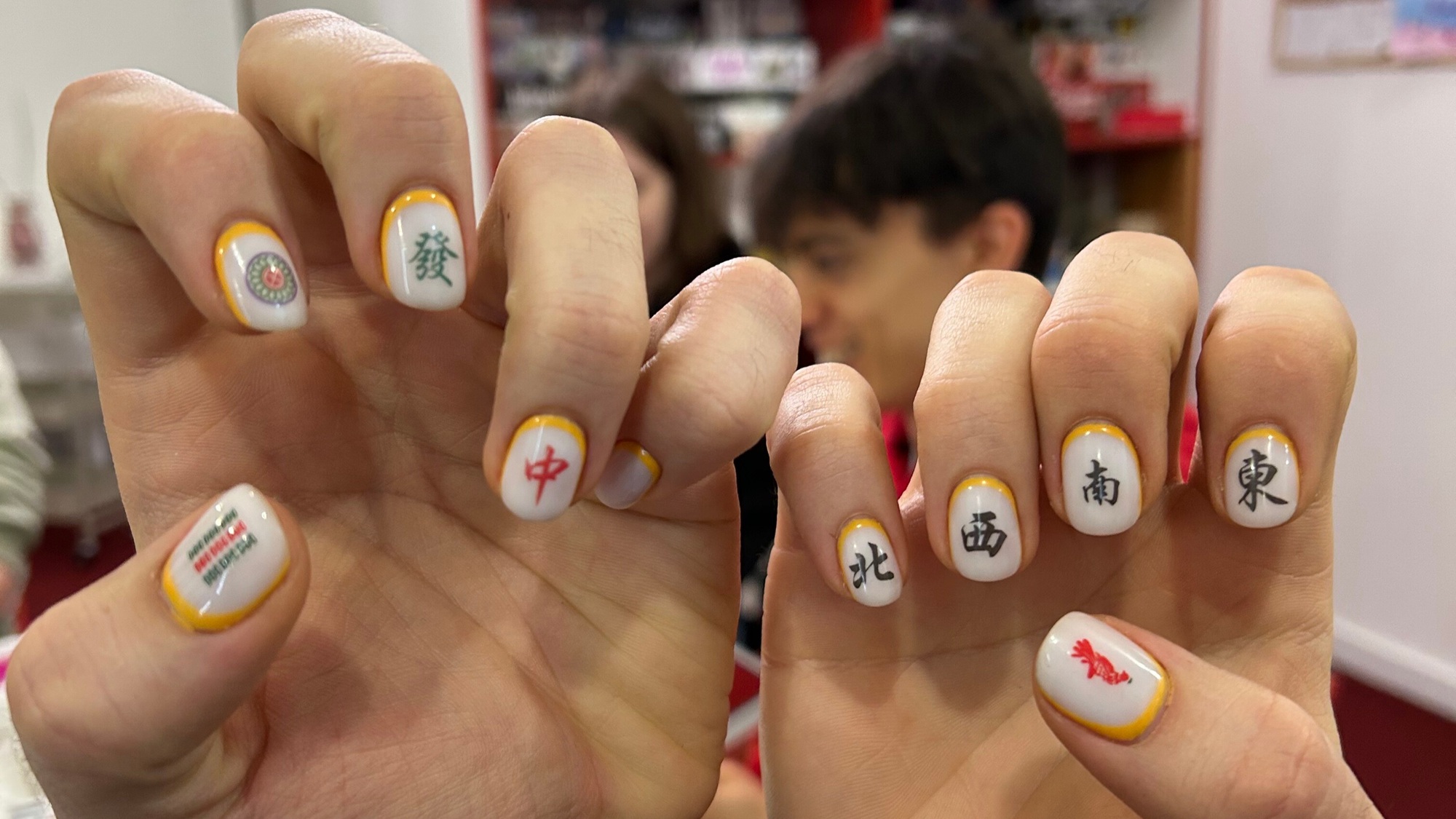Some people, she said, “don’t feel like they can just relax and forget that the war is going on, and they feel guilty when they’re just taking some breaks and just trying to relax on weekends.” Others, she added, criticized those who sought out distraction. But to her, “most people, they don’t understand that you really need some breaks.”
Polina may have understood the importance of finding room for breaks better than most. She does not strive to be a doctor like others in her family. Instead, she wants to pursue art and open a cafe where you could relax, sip a coffee and play a game.
For a while, she felt unsure about her ambition because it didn’t involve saving lives. But then she realized that creating such a space “is what actually saves people,” because it could help reduce the need for mental health care later.
Like all types of mahjong, Riichi is part skill and part luck. To win a hand, players assemble 14 tiles into four groups of straights or triplets, plus a pair.
You also need a yaku, a special pattern that determines how high you’ll score. Some yaku are more valuable than others; the rarest are called yakuman. A regular player could go for a year or more without getting one.

A Japan Dojo member named Yevhen Kolodko, whose fingernails were exquisitely painted to look like Riichi tiles, said he got a yakuman a few months earlier: “It was hilarious.” I think he meant it was both thrilling and wildly lucky.
We started talking about luck.
Kolodko told me his family has been fortunate. His brother was drafted but works in tech on a base. His family had to leave their life in Luhansk after Russia seized the Donbas region in 2014, but now they’re OK. Kolodko, a data scientist, thinks about statistics a lot — in mahjong and in war. He reminded me that the chances of being killed in a missile attack in Kyiv, like the one a few days before, remained low in a city with a population of nearly 3 million.
But in Ukraine, he added, “We play the lottery every day.”
While I was at Japan Dojo, a few players taught me the basics of Riichi. Later, I showed a group how to play American mahjong with a set I’d brought from California. They were quick studies and peppered me with questions.
I’d like to say I had profound thoughts about the irony of our easy collaboration while the U.S. government’s support for Ukraine wavered. But we were all too caught up in the game.
The reporting for this essay was supported by the International Women’s Media Foundation’s Women on the Ground: Reporting from Ukraine’s Unseen Frontlines Initiative in partnership with the Howard G. Buffett Foundation.

